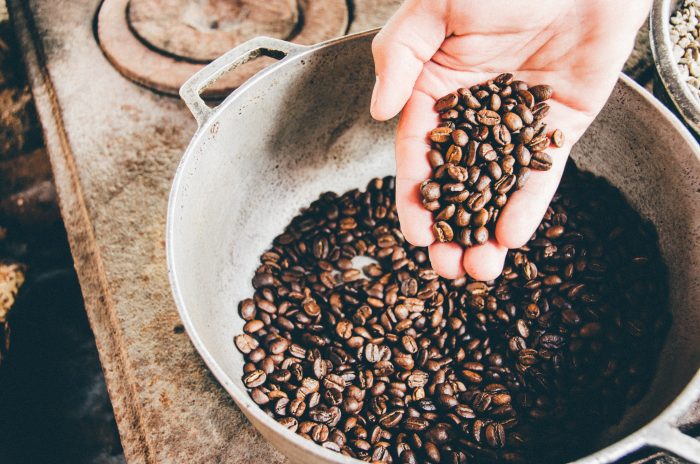For those of us who need a cup of coffee to start the day, let’s choose to fill our favorite mugs with something hot, aromatic, and good for this planet.
I remember when I first read it—the article that informed me that my two cups of coffee a day required the beans from 18 trees every single year. It had to be a typo. Aren’t coffee trees big? Surely one tree would support my caffeine addiction. I was still a sustainable consumer, even with caffeine coursing through my blood every day, right?
I was wrong. The big coffee tree in my mind is, in fact, a shrub. Coffee production often requires fertilizers and pesticides. Farmers normally aren’t paid fairly. Oh, and then there’s the 16 billion coffee cups that are thrown away each year…
Like money, I was sure that the beans grew abundantly, and could be plucked as soon as someone said the magic word, “venti.” Turns out, I was wrong about that too. Coffee cherries, the red seeds that get processed to eventually become our ground or whole bean coffee, are typically only harvested once a year, during a tedious and labor-intensive process.
Ah, the sweet aroma of sustainability.
From seed to sip, there’s an opportunity for sustainability in each step of the coffee supply chain. The growth of the beans can impact soil health and ecosystems. The processing of the cherries results in a lot of waste. The transportation from countries like Nicaragua or Ethiopia requires a lot of fossil fuels. Then there’s the consumption: a super sweet caramel macchiato that came in a disposable coffee cup probably isn’t the best for our health—or that of our planet.
Although we may face a coffee shortage soon, all of this bad news doesn’t mean that we need to switch up our morning routines just yet.
There are still several ways we can enjoy coffee without feeling totally guilty about it.
Reduce and reuse.
The most obvious solution is to drink less coffee. Chicory coffee or dandelion tea are common alternatives. Yerba mate is another go-to for people who can’t ditch the caffeine. It will still provide a small buzz, and even has some associated health benefits.
If coffee is the only thing that gets you through the daily grind, try reusing your grounds either as a fertilizer for the garden, or a smell-good exfoliant in the shower.
Look at labels.
The organic certification of coffee means that farmers don’t use synthetic pesticides, and have plans in place to prevent one of the most common problems of coffee growing—erosion.
“Bird-friendly,” or “shade grown” are also good verbiage to look for. Both the Rainforest Alliance and the Smithsonian Migratory Bird Center certify coffee that protects the local environment, and is grown in ways that go beyond organic.
UTZ Certified and Fair Trade Certified are other indicators that the planet and the workers are respected throughout the production process.
Say no to paper cups.
Want to make a huge impact right now? Coffee consumption is on the rise, which means that we’re also using more disposable cups. Reusable travel mugs come in all shapes and sizes, and are now available practically everywhere.
Don’t want to fork out for a new mug? Make your own instead. It can be done with just a recycled glass jar and some reused rubber bands.
Ditch disposables.
Do you use paper filters? Have you fallen in love with your Keurig? Most paper filters are chlorine-bleached and end up in landfills. And we all know about the estimated 56 billion coffee capsules that went to landfill in 2019. Reusable versions of both of these are available and with a varied price range, anyone could make the switch today.
So, next time you grind fresh beans or order a latte, think about where your cup of liquid gold is coming from. Does it contribute to a healthy planet? Does it support people who rely on coffee for their livelihood?
The good news is that a cup of java can come with more than just a jolt of caffeine. It can help make the world a better place.









Read 6 comments and reply